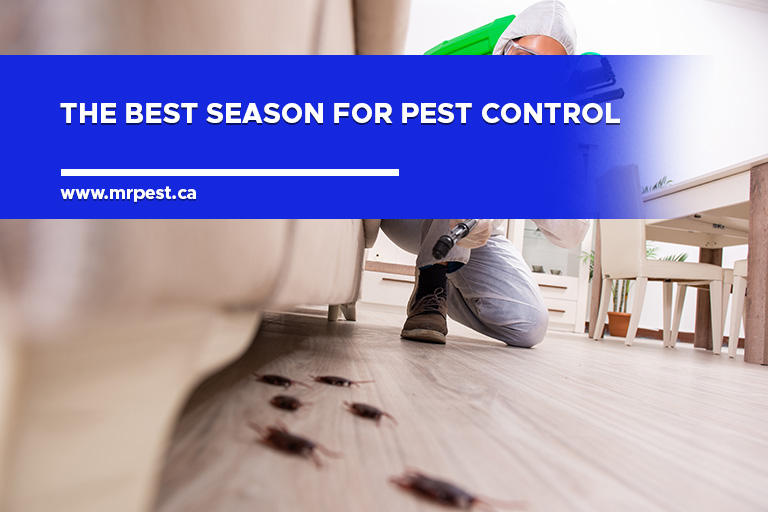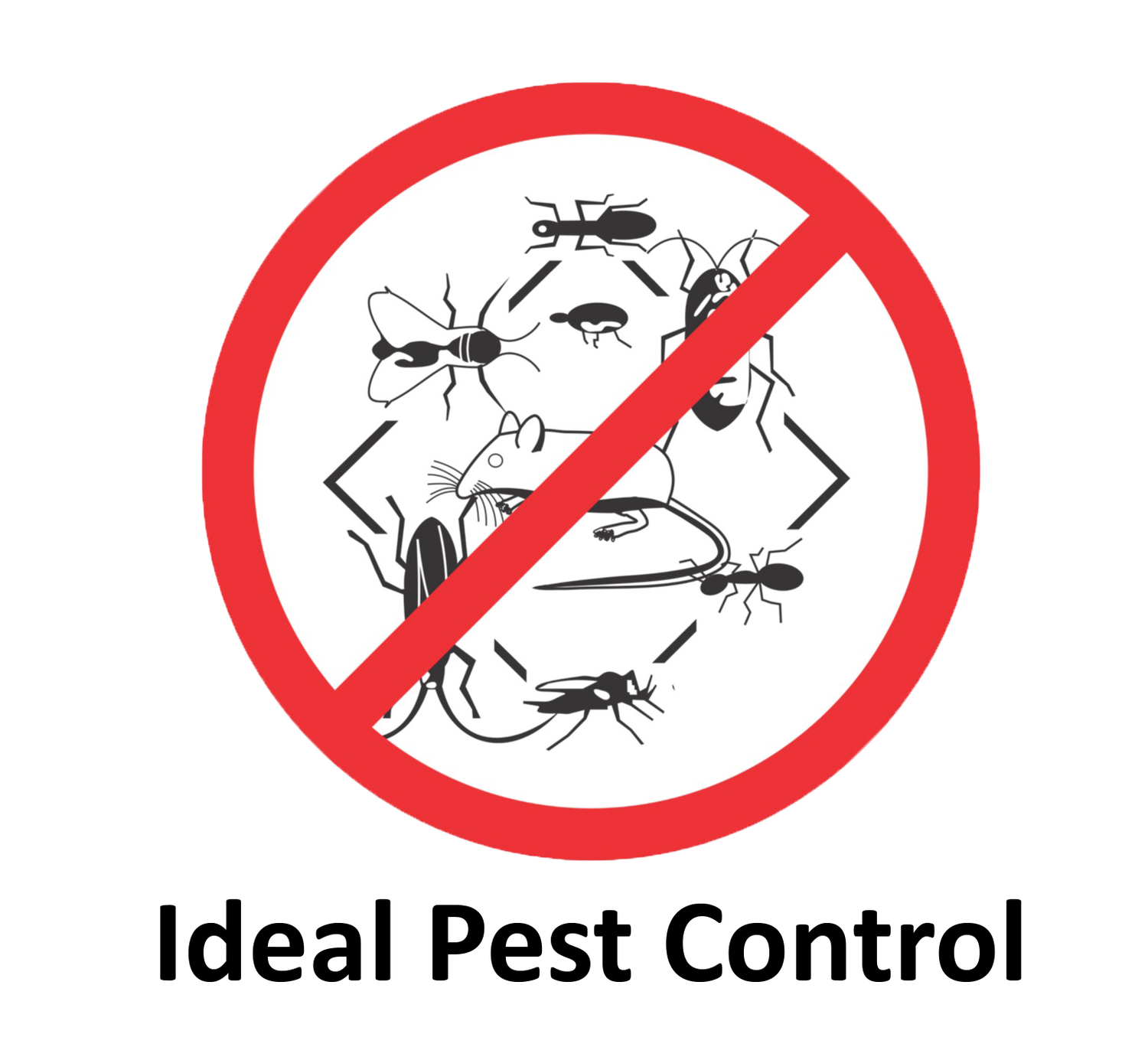Experienced Coquitlam Exterminator for Comprehensive Pest Removal
Experienced Coquitlam Exterminator for Comprehensive Pest Removal
Blog Article
Safe and Dependable Pest Control for Lasting Protection
Efficient bug management needs a complex approach that balances environmental stability with the need for efficient bug reductions. The nuances of these techniques might not be immediately clear, motivating a more detailed assessment of the practices that can lead to sustainable insect control end results.
Recognizing Pest Control Techniques
Bug control includes a selection of methods focused on managing and removing undesirable insects and rodents that can endanger both health and wellness and home. Recognizing these techniques is essential for reliable parasite monitoring.
The key groups of parasite control approaches consist of mechanical, organic, and chemical approaches. Mechanical methods entail physical obstacles and catches to avoid pest entry and capture undesirable varieties. For example, making use of displays on windows or utilizing sticky traps can considerably decrease pest populaces without presenting hazardous substances.

Chemical insect control is often the most identified approach, making use of chemicals to eliminate insects. These chemicals can be reliable yet have to be used with caution to stay clear of negative effects on non-target types and the setting.
Benefits of Eco-Friendly Solutions
Just how can green services change pest control methods? The adoption of eco-friendly bug control approaches supplies various advantages, significantly boosting the effectiveness and security of bug monitoring (exterminator coquitlam). Firstly, these options use all-natural ingredients, decreasing the dependence on unsafe chemicals that can pose risks to human health and wellness and the setting. This shift not only shields households and family pets yet additionally decreases the possibility for soil and water contamination.

An additional advantage is the favorable effect on local biodiversity. Green services are developed to target certain pests while preserving beneficial insects and wild animals, advertising a balanced ecological community. This strategy straightens with the growing customer demand for lasting practices, boosting the credibility of insect control service providers.
Integrated Parasite Administration Strategies
The implementation of green remedies naturally brings about the adoption of Integrated Parasite Management (IPM) methods, which further boost parasite control effectiveness. IPM is an all natural method that incorporates multiple strategies to take care of parasite populations while decreasing environmental impact. This method emphasizes the use of organic, social, mechanical, and chemical controls, ensuring a balanced and lasting method of insect monitoring.
One fundamental facet of IPM is the extensive analysis of parasite activity and environmental problems. By keeping an eye on parasite populaces and recognizing their life cycles, specialists can execute targeted treatments that interfere with the parasite's environment or lifecycle, reducing reliance on chemical pesticides. Furthermore, cultural practices such as plant turning and habitat control can dramatically lessen pest establishment and recreation.
Another essential part is making use of organic control representatives, such as valuable pests or microbes, which can normally reduce bug populaces. When chemical applications are required, IPM prioritizes the use of low-risk chemicals and applies them selectively, minimizing exposure to non-target organisms and people.
Incorporating IPM methods not only boosts parasite control performance but additionally advertises a much safer environment, lining up with the growing need for lasting practices in parasite administration.
Safe Practices for House Owners
Recognizing the significance of safe methods in insect control can empower home owners to properly handle pest concerns while securing their wellness and the atmosphere. Executing precautionary steps and safe approaches is important in minimizing direct exposure to hazardous chemicals.
Property owners need to first examine their setting for conditions that draw in bugs, such as standing water, clutter, and food waste. Consistently cleaning and sealing access points can discourage bugs from attacking the home. Utilizing natural deterrents, such as vital oils or diatomaceous planet, can supply effective alternatives to chemical pesticides.
When chemical treatments are needed, home owners need to select products that are specifically labeled as risk-free for property usage. It is crucial to adhere to application standards meticulously to stay clear of overexposure. Additionally, using targeted treatments in areas where pests are identified, as opposed to covering splashing, can substantially lower chemical usage.
Last this but not least, preserving open communication with parasite control specialists is essential. Home owners need to make inquiries regarding the security of products used and demand green alternatives whenever feasible. By taking on these safe practices, house owners can create a much healthier living atmosphere while properly taking care of parasite problems.

Tips for Long-Term Security
Establishing an insect administration strategy that emphasizes lasting security can substantially boost the efficiency of the safe practices formerly discussed. To achieve this, property owners need to carry out regular examinations of their residential property, focusing on concealed locations such as attic rooms, basements, and crawl spaces. Early detection of pest task is important in stopping problems from taking hold.
Additionally, preserving a clean environment is vital. This includes proper food storage, immediately cleaning up spills, and consistently disposing of waste. These techniques reduce attractants that attract parasites right into the home. Securing entry points, such as splits around home windows and doors, can properly obstruct prospective parasite access.
Landscaping must also be considered; keeping plants trimmed and maintaining a distance between greenery and the home reduces hiding areas for pests. Utilizing all-natural deterrents, such as important oils or diatomaceous earth, can even more dissuade invasions without turning to extreme chemicals.
Last but not least, working together with a professional insect control service for periodic evaluations can provide an added layer of security. These specialists can offer tailored recommendations and advanced treatments, making certain that your home continues to be secured versus bugs in the long term.
Conclusion
To conclude, secure and trusted insect control requires a complex technique that highlights environment-friendly techniques and integrated insect management. By implementing all-natural deterrents, conducting routine evaluations, and maintaining correct sanitation, residential property owners can significantly lower insect populaces while protecting beneficial pests and the atmosphere. Cooperation with expert parasite control services boosts the have a peek at this site efficiency of these strategies, making sure tailored solutions that supply lasting security and peace of mind against future problems.
Effective bug administration calls for a multifaceted strategy that balances environmental honesty with the need for efficient parasite reductions. The fostering of environmentally friendly pest control techniques offers various advantages, significantly boosting the performance and safety of bug monitoring.The implementation of environmentally friendly options normally leads to the fostering of Integrated Bug Management (IPM) methods, which better boost pest control efficacy. exterminator coquitlam. By checking pest populations and identifying their life cycles, experts can apply targeted treatments that disrupt the pest's habitat or lifecycle, decreasing reliance on chemical pesticides.In final thought, risk-free and trusted pest control requires a multifaceted method that emphasizes environmentally friendly read here approaches and integrated pest management
Report this page